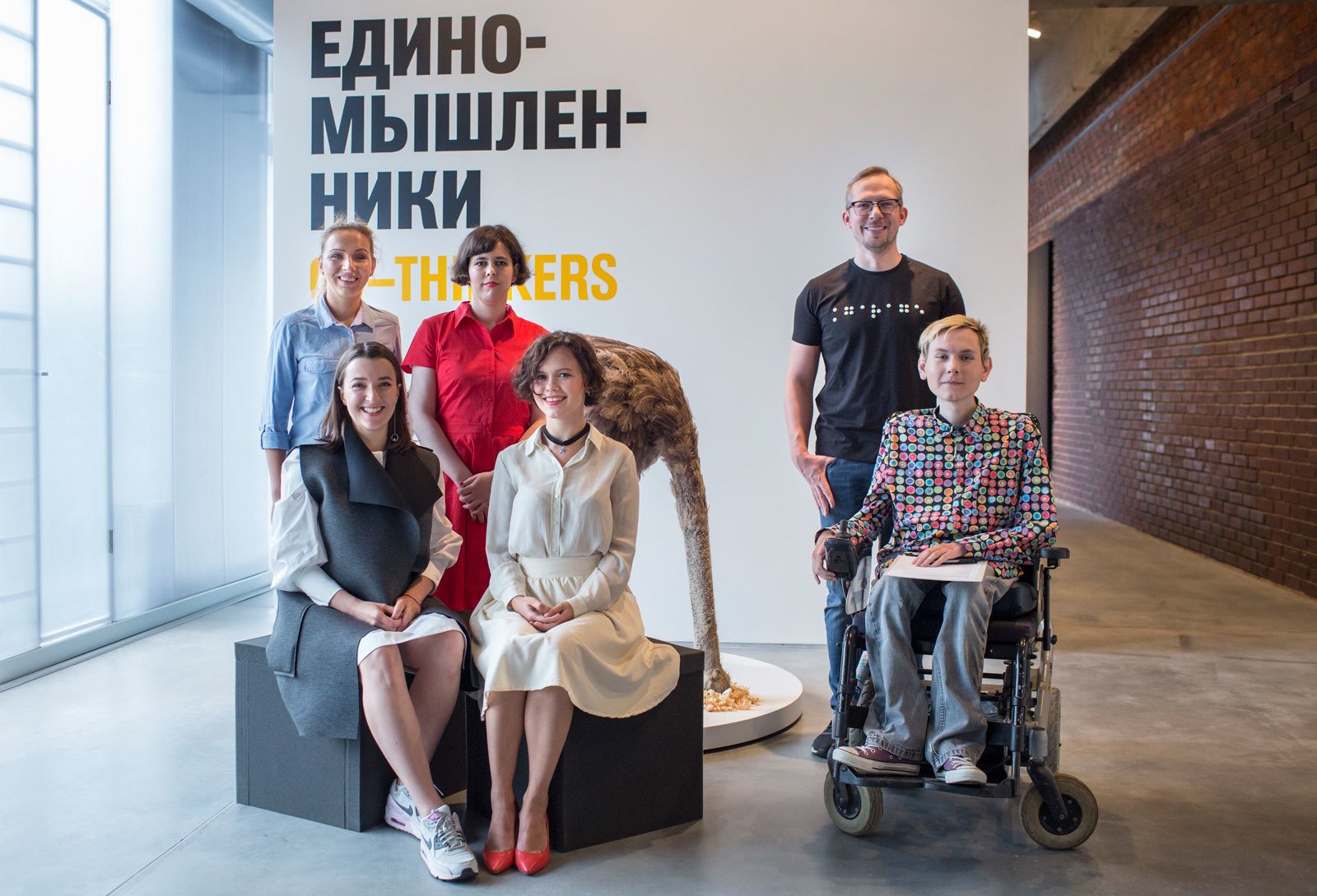The exhibition Co-Thinkers at the Yeltsin Center, Yekaterinburg
Date

Showing exhibitions developed by Garage’s curators outside of Moscow is an important part of Garage’s activities. One of the central events of this year’s program in the regions is the exhibition Co-Thinkers at the Boris Yeltsin Presidential Center in Yekaterinburg (July 21–October 15).
First shown in Moscow in summer 2016, Co-Thinkers became one of the few Russian projects to engage groups that were previously largely excluded from the public debate on contemporary art.
The museum has long been a space for seeing and hearing visitors, and standard museum communication is addressed to those who can see and hear well. Co-Thinkers invites visitors to reconsider the way we experience art and rediscover the variety of perspectives possible in a contemporary museum. In order to achieve this, the group of curators working on the project collaborated with four visitors with varying disabilities—Elena Fedoseeva, Evgeny Lyapin, Elizaveta Morozova, and Polina Sineva—who contributed to the development of the project at every stage.
Co-Thinkers features major works by world-famous contemporary artists rarely exhibited in Russia, including Cecily Brown, Maurizio Cattelan, Mark Quinn, John Miller, Rob Pruitt, Neo Rauch, Robert Rauschenberg, Ed Ruscha, Jenny Saville, Cindy Sherman, Elaine Sturtevant, Rosemarie Trockel, and James Turrell. The works, selected from Moscow private collections, create a perception shift in the viewer’s imagination, stimulating reactions ranging from uncertainty, hesitation, and critique to admiration, irony, and meditation.
Co–thinkers includes interactive stations that combine curator’s comment with a range of tools for perceiving art: audio description and tactile models for blind and partially sighted visitors, and videos with comments in Russian Sign Language for the deaf and hard of hearing. The exhibition also features stories about the chosen works by the four ‘co-thinkers’ themselves.
Seeking to overcome the limitations in accessibility of art to visitors with disabilities and offering a range of possible ways of experiencing art (through visual, verbal, tactile, or written interaction, comments by art historians and non-professionals) the exhibition is intended as a sensory experience for all audiences, and explores the difficulties museums might face in ‘translating’ artworks into different media.
Raising awareness of limitations in the accessibility of culture to people with disabilities, the project also offers a platform for discussing the factors that condition museums’ collaboration with ‘the other’ visitor. The public program for the exhibition at the Yeltsin Center includes a series of seminars and round-table discussions on inclusion for museum professionals, as well as tours, workshops and a debate club for visitors with and without disabilities, each juxtaposing a number of different perspectives on art and helping visitors to find their ‘co-thinkers’.
Elena Fedoseeva, Polina Sineva, Anton Belov, Garage Director, Anastasia Mityushina, Garage Curator, Maria Sarycheva, Garage Inclusive Projects Coordinator, Evgeny Lyapin